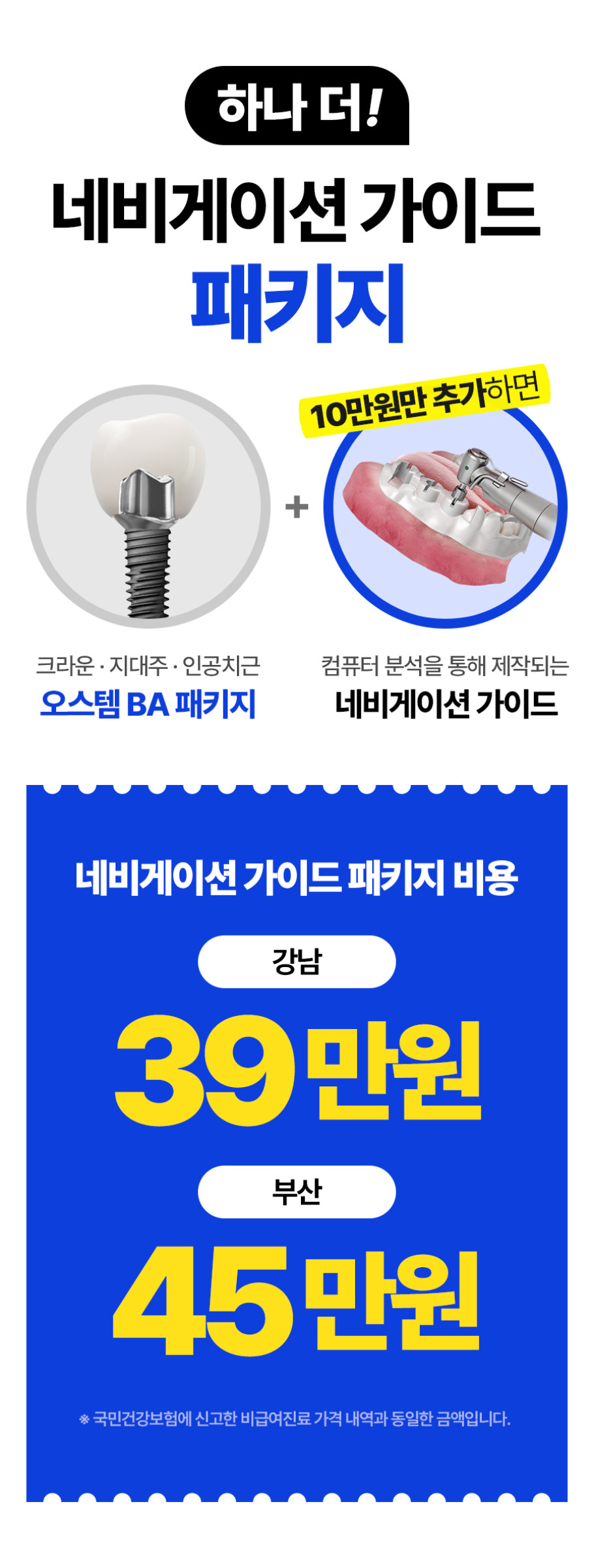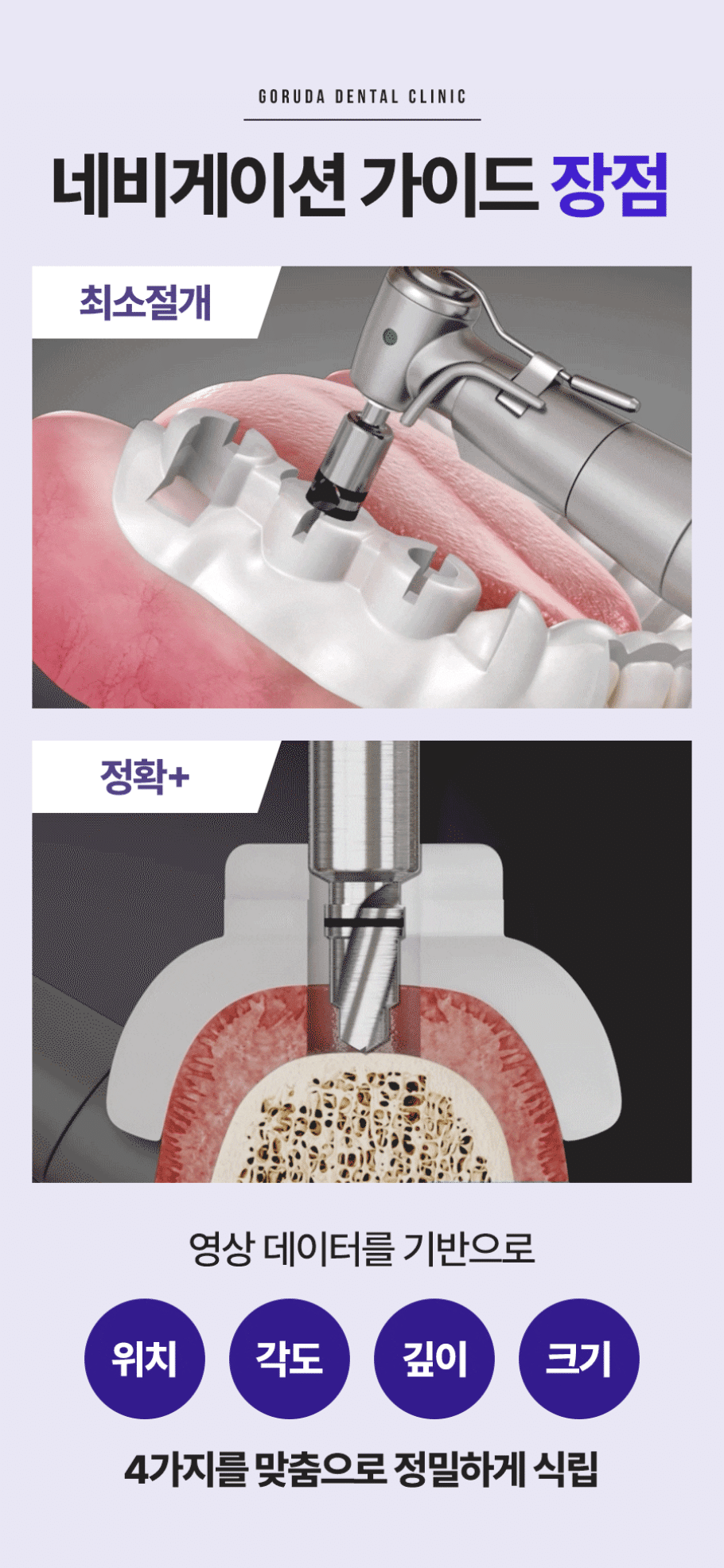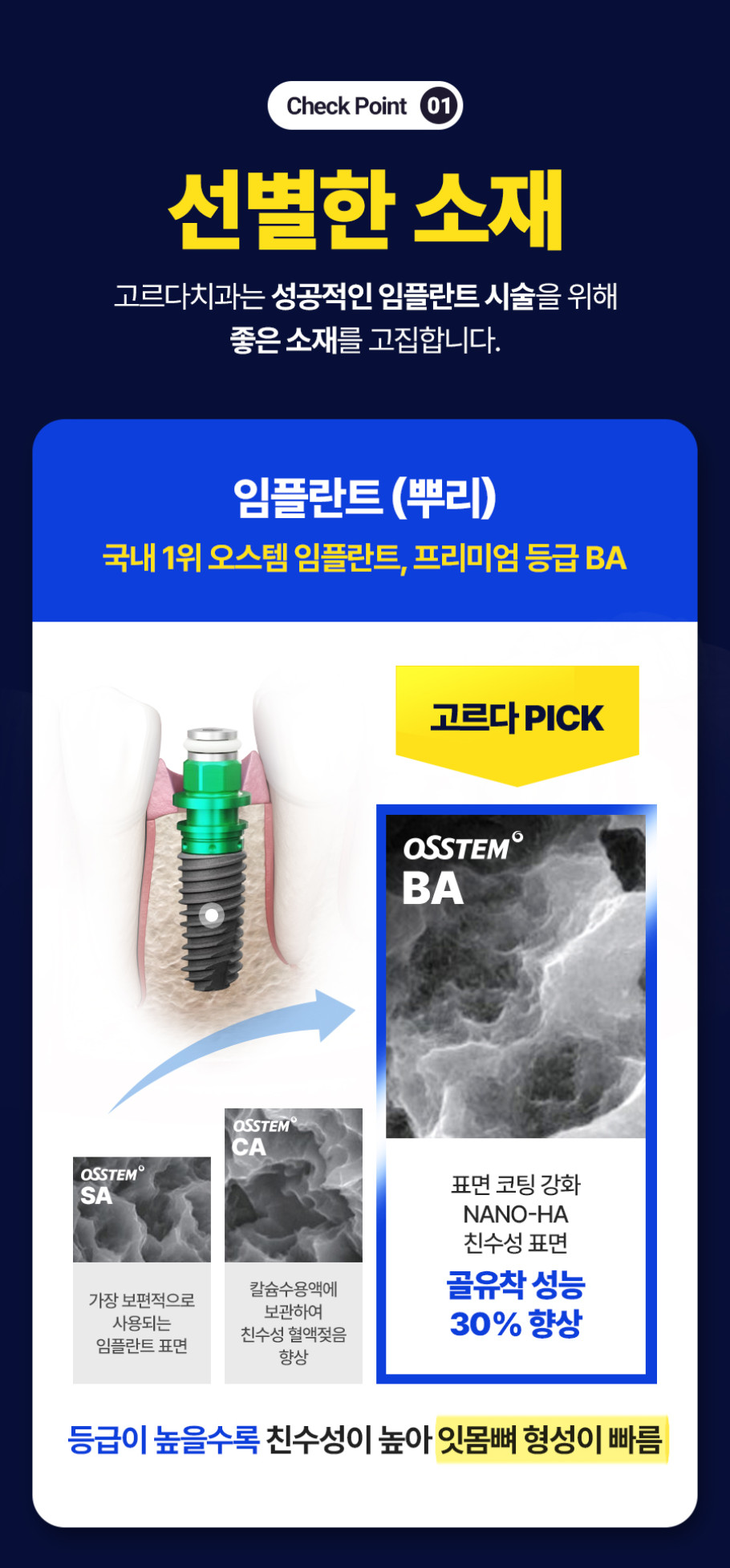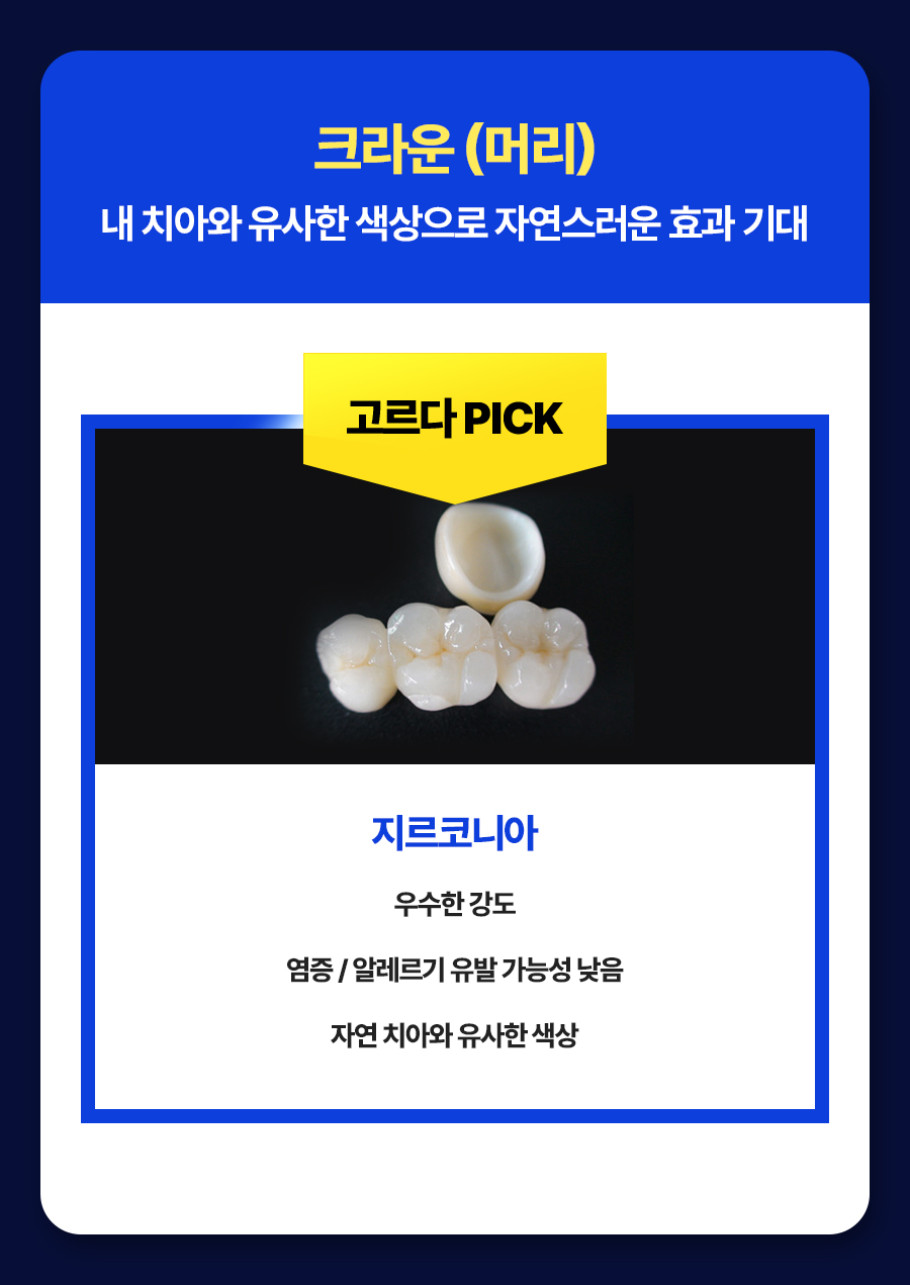Causes of Implant Pain

The causes of implant pain.
Natural teeth are not just tools for breaking down food into smaller pieces; they are valuable organs that enable clear pronunciation and have a direct and indirect impact on external appearance and facial bone structure. However, natural teeth can be lost due to various environmental and physical reasons. This can negatively affect oral health as well as overall systemic health, so it is important to manage them carefully from the start. Natural teeth do not regenerate once damaged, so prevention and early intervention are crucial.
In particular, many people neglect the loss of one or two permanent teeth. If this happens, the adjacent teeth move to fill the empty space, disrupting the entire dental arch and often leading to reduced chewing efficiency. This can be followed by problems such as decreased digestive function, nutritional imbalance, and speech issues. There is also a risk that the alveolar bone will be absorbed due to lack of stimulation, and the oral structure itself will collapse. Many dental clinics in Seoul initially detect these warning signs and establish appropriate treatment plans.
If natural teeth are already severely damaged or irreparable, implants are often used as a way to replace the missing teeth. Implants are a method of restoring function and aesthetics by firmly implanting artificial tooth roots made of biocompatible materials into the jawbone. Recently, they have been the choice of many patients due to their stable fixation, excellent chewing function, and appearance similar to natural teeth.
However, to achieve satisfactory results, choosing an implant dentist in Seoul is a key factor. It is necessary to carefully consider whether the clinic has systematic diagnostic equipment and whether it is possible to establish a plan tailored to the individual's oral structure. Before the actual surgery, the density and height of the jawbone are assessed using 3D CT or oral scanners, and bone grafts are performed when necessary. The more experienced the dentist is in Seoul, personally providing care and establishing a precise plan, the better the results you can expect.
Implant treatment is performed in stages, and the recovery period varies accordingly. First, after inserting the titanium fixture into the alveolar bone, it is necessary to wait until it is firmly bonded to the bone. The healing period generally requires about 2-3 months for the mandible and 4-6 months for the maxilla, and medication is taken to prevent infection during this stage.
Once the healing process is complete, an abutment, which is a connecting post, is attached, and the treatment is completed by placing an artificial tooth (crown) as the final step. In implant dentistry, these entire processes are often performed more precisely and safely using digital equipment and guidance systems. In particular, in the case of patients with systemic diseases such as diabetes or hypertension, or elderly patients, a method of reducing the area of incision to alleviate the burden can be applied to obtain more stable results.
Although some people mistakenly believe that implants do not develop dental caries because they are artificial teeth, in reality, peri-implantitis, an inflammatory disease around the implant, can occur. Unlike natural teeth, there are no periodontal ligaments, so pain is not easily felt even when inflammation occurs, which often leads to delayed detection. For this reason, implant dentists emphasize regular check-ups, maintenance, and meticulous hygiene habits even after treatment.
Brushing is the most basic, and it is necessary to carefully remove food and plaque stuck between the prostheses by using dental floss or interdental brushes. Regular scaling is also essential, and it is advisable to avoid smoking or eating hard foods.
If aftercare is not properly performed, peri-implantitis can worsen, causing the fixture to move or, in severe cases, fall out, leading to re-treatment. Therefore, efforts to correct lifestyle habits are also necessary. Among dental clinics in Seoul, there are many clinics that thoroughly operate such aftercare programs.
Implants are among the more expensive prosthetic treatments, and many people worry about the financial burden. However, these days, health insurance is applied to the elderly aged 65 or older, and some implant dentists in Seoul have established detailed systems ranging from examination to planning and cost guidance.
In particular, if there are more than a certain number of remaining natural teeth, health insurance support can be received for up to two implant procedures, and the co-payment is approximately 30%.
The total cost varies depending on the materials used, the area of the procedure, whether or not bone grafting is performed, and the individual's oral condition, so it is necessary to visit in advance and receive a clear consultation. Rather than simply choosing based on low cost, it is a good idea to find an implant dentist with experienced medical staff, a safety system, and systematic aftercare to increase long-term satisfaction.


















































Source :https://blog.naver.com/spike2121/224060863693
No comments yet.
